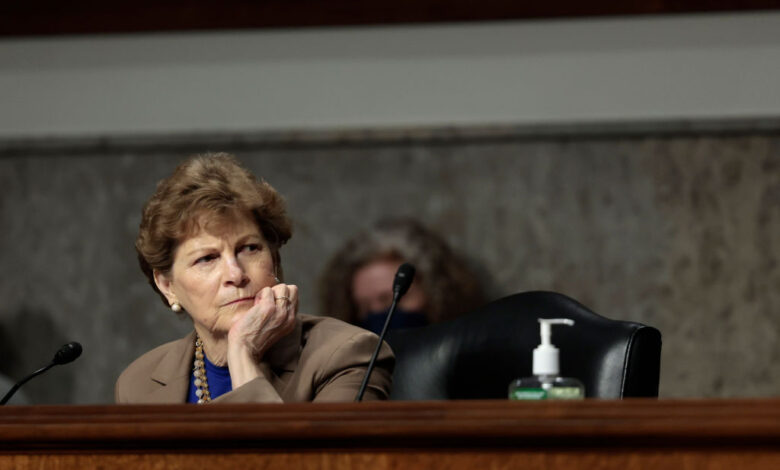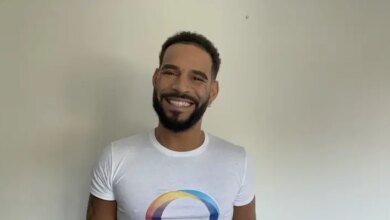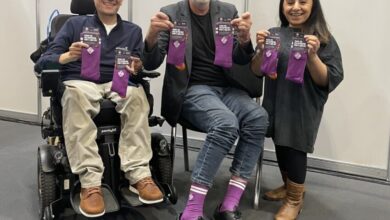Recognizing disabled entrepreneurs in New Hampshire and beyond – New Hampshire Bulletin

According to a report by the National Disability Institute, approximately 1.8 million Americans with disabilities are business owners.
It’s not surprising that almost 2 million disabled Americans striving to work are choosing to forge their own paths through entrepreneurship, and at nearly twice the rate of the nondisabled.
Despite the variety of skills, talents, and diversity that people with disabilities bring to the fabric of the American economy, barriers remain that prevent them from obtaining and maintaining traditional employment. Some employers can’t imagine a job being done in a different and more flexible way, which reduces available opportunities. But if the pandemic had one salutary effect, it was to increase the acceptance of adaptive, nontraditional, and flexible working environments for everyone, demonstrating that people both with and without disabilities can work efficiently and successfully in a variety of settings.
For disabled people and their employers, recognizing that accommodations and adjustments can help employees thrive has been transformative.
Our mission at UNH’s Institute of Disability (IOD) is to ensure full inclusion of people with disabilities in all spaces, including the workplace. Employment opportunity is key to economic mobility and self-sufficiency for disabled people and an important mechanism for well-being and independence. Yet today, many disabled working adults face challenges such as lack of accessible transportation, insufficient employee training or support, and employer prejudice.
In the 2015 National Employment and Disability Survey, which the IOD conducted in partnership with the Kessler Foundation, our researchers found that over two-thirds (68 percent) of working-age people with disabilities were striving to work, characterized by job preparation, job search, and/or participation in the workforce since the onset of their disability. The IOD’s January 2024 nTIDE report found that only 37.8 percent were working compared to 74.2 percent of those without disabilities. In addition, those with disabilities who are employed are less likely to have a job with above-average wages, employer-sponsored health insurance benefits, or a retirement plan.
Increasing the employment rate of people with disabilities requires a variety of local, state, and federal investments, including policies to support and facilitate opportunities. Policies that intentionally support people with disabilities to be community leaders and business owners can move the needle on economic mobility, engaged citizenship, and social inclusion.
The IOD strives to link the needs of disabled people (as defined by this group) and university research to inform public policy solutions. Policies that invest in expanding the workforce not only build opportunities for disabled people but directly benefit our local and state economies.
Recently, Sens. Jeanne Shaheen and Mike Braun, an Indiana Republican, introduced the bipartisan Supporting Disabled Entrepreneurs Act (SDEA) to increase awareness of disabled entrepreneurship. The bill directs the Small Business Administration to designate an agency point of contact for disabled entrepreneurs and to gather data, on a voluntary basis, about those who participate in their programs.
In addition to acknowledging the existence of disabled entrepreneurs, the bill challenges the assumption that people with disabilities either can’t or don’t want to be entrepreneurs. Many disabled entrepreneurs have unique perspectives and can build businesses around their own talents, strengths, and interests. SDEA demonstrates a level of commitment and interest from the federal government in supporting this community and contributing to its success. To understand need, impact, and progress data collection is essential. Proposals like this can help advance our mission to recognize that disabled people are valued members of the business and local community.
One billion people, or 16 percent of the world’s population, have a disability, making disabled people the largest minority in the world. In the United States, 1 in 4 people live with disabilities, and between the advent of long COVID and those naturally entering into disability, that number is only increasing. Entrepreneurial opportunity for disabled individuals is beneficial to both the disability community and the U.S. economy. The disability community represents a plethora of untapped talent and ideas for new businesses, and doubles as a significant customer base in search of inclusive products.
Unlocking entrepreneurial opportunity for disabled individuals is essential for financial stability and opportunities to build generational wealth for both disabled founders and disabled employees – as well as the health and sustainability of the national economy.





